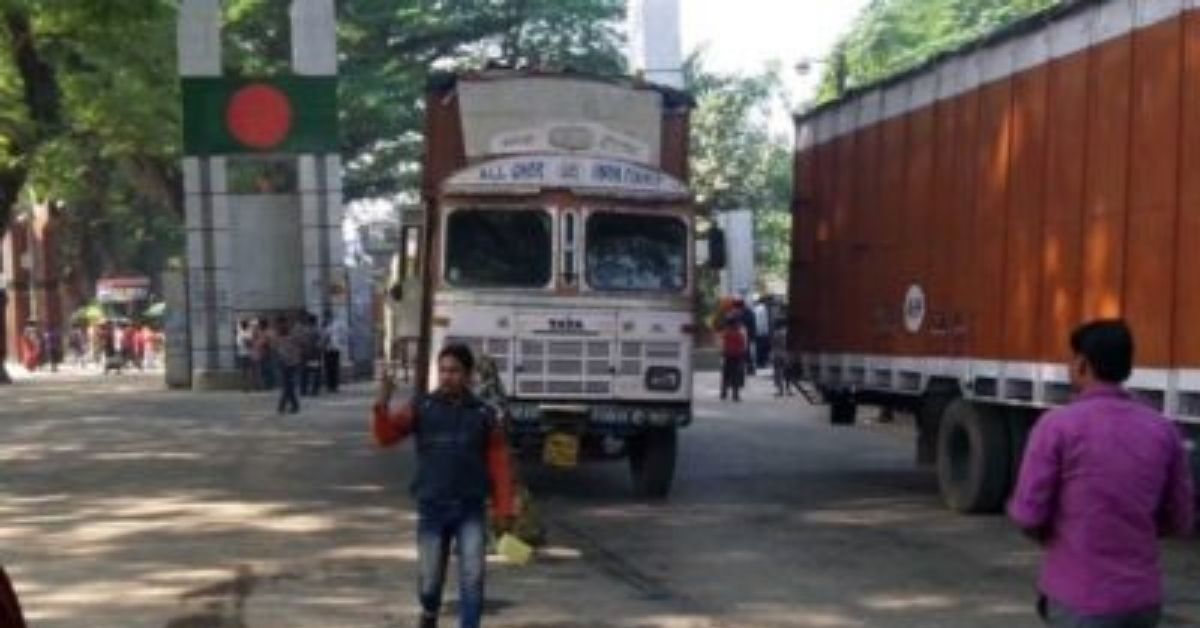Permanent access to Bangladesh’s major seaports granted for India for transit trade lies as a lame duck as traders of the neighbouring country opted for cheaper way to reach their landlocked northeastern states, sources say.
Although they have completed four trial runs with huge enthusiasm and pressure was mounted on Bangladesh customs to issue a permanent order opening up Chittagong and Mongla seaports for transit in several bilateral meetings, none of the traders did show interest in using the route since the issuance of permanent order in April 2023.
The National Board of Revenue (NBR) issued the permanent order in accordance with a bilateral deal titled ‘Agreement for the use of the Chattogram and Mongla ports (ACMP)’, signed in 2018.
India inked the agreement to reduce both cost and time of transportation of goods into its northeastern states.
Officials have said India has developed its own rail routes from West Bengal to reach its seven sisters leapfrogging Bangladesh transit facilities although the customs incorporated transit options into its Asycuda system of taxing and took the trouble of issuing the permanent order.
Use of the transit routes could benefit the country’s transport sector and freight operators as traders of the neighbouring country would require using Bangladeshi trucks and transit operators for cargo movement.
A senior official of the customs wing of the NBR said the traders found escort and other fees as major barriers due to escalation of costs of product shipments, though all rates of fees set in 2020 in the Transit and Transhipment Order of Customs remained almost unchanged in 2023.
The permanent order of the revenue board has defined all the procedures and fees applicable to transportation of goods to and from the landlocked northeastern seven-sister states of India.
Mostafa Kamal, Secretary of the Ministry of Shipping (MoS), says the ministry is reviewing the issues by forming a committee to remove bottlenecks on use of the land transit.
He says some India traders have found the cost of using the transit higher than that of reaching the seven sisters travelling on the regular routes as they have to count higher road taxes.
“Both the counties sat together to make the process of using the transit routes simpler,” he adds.
Professor Dr Mustafizur Rahman, distinguished fellow of the Centre for Policy Dialogue (CPD), says the government opened up the transits with huge enthusiasm to boost bilateral cooperation and trade, but untimely. It is not showing any result.
“Inland water-transit protocol was also signed to facilitate bilateral trade using the river transit, but it has also not proved effective,” the economist adds, on a downbeat note on what appears as a quixotic undertaking.
Earlier, under a river protocol, Bangladesh allowed India to use its Ashuganj customs point as transit pass-through.
Prof Rahman observes that the government usually delays implementing such decisions and, by that time, traders find their alternative ways.
He also points at the country’s lax infrastructures in the port and road as a reason, as also ineffectual transit rules.
Bangladesh-India Chamber of Commerce and Industry (BICCI) president Matlub Ahamad sees the road connectivity of Chittagong with Tripura and Meghalaya as too poor to serve the purpose.
He suggests that both India and Bangladesh must develop land-port infrastructure so the ports could be used in a greater way to benefit Northeast India, Nepal and Bhutan from Mongla seaport.
For Mongla port use, he points out lesser navigation draught and poor connectivity infrastructures.
“The route is also attractive to Bhutan and Nepal but, as Indian territories fall in-between, its smooth movement has yet to become successful,” he adds.
As per NBR order, document-processing fee has been fixed at Tk 30 per chalan while transshipment fee Tk 20 per tonne, security charge Tk 100 a tonne, escort charge (if applicable) Tk 85 per kilometre for transportation of container by truck, trailer or covered van. The escort fee for trial runs of transit goods was Tk 50 per tonne.
Miscellaneous administrative charges have been set at Tk 100 per tonne, container-scanning fee Tk 254 per container, electronic lock and seal (if applicable) as per the rules.
Tolls for using roads would be collected as per the rates to be fixed by the Road Transport and Bridges Authority.
The routes for transit and transshipment include Chattogram-Mongla port to Agartala via Akhaura, Chattogram-Mongla port to Dawki via Tamabil, Chattogram-Mongla port to Sutarkandi via Sheola, Chattogram-Mongla port to Srimantapur via Bibirbazar and vice versa.








